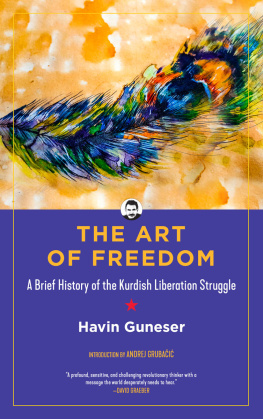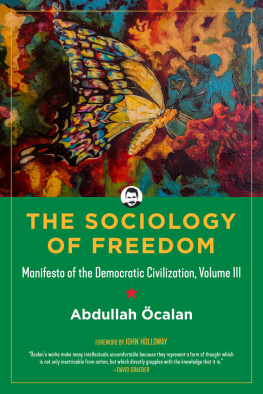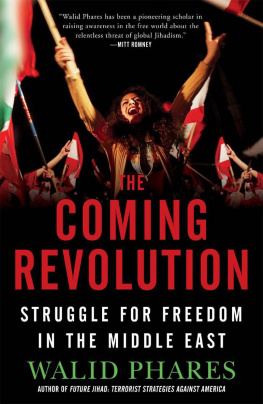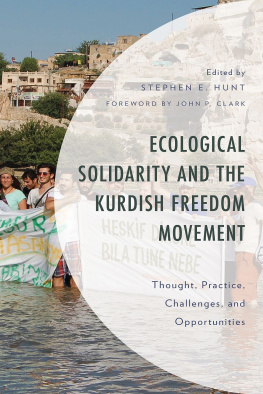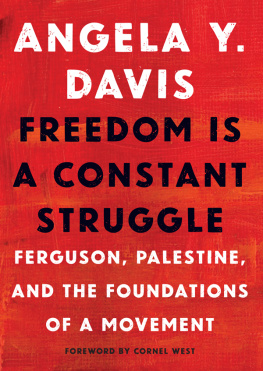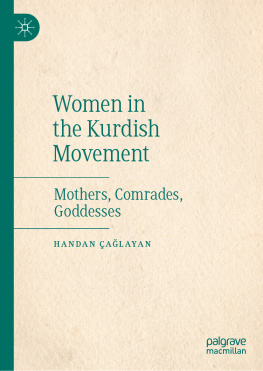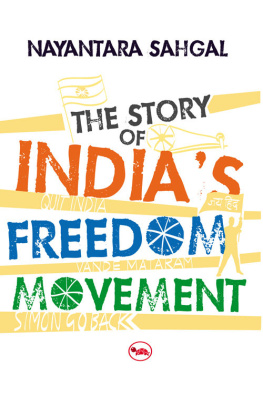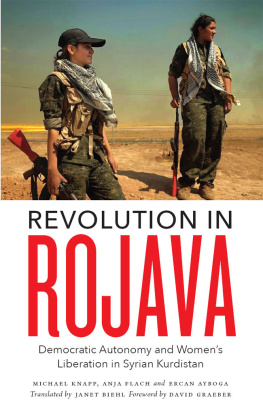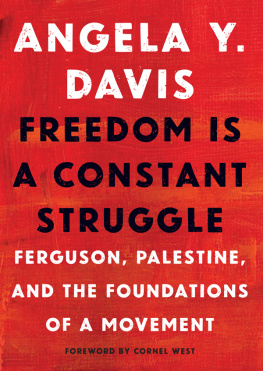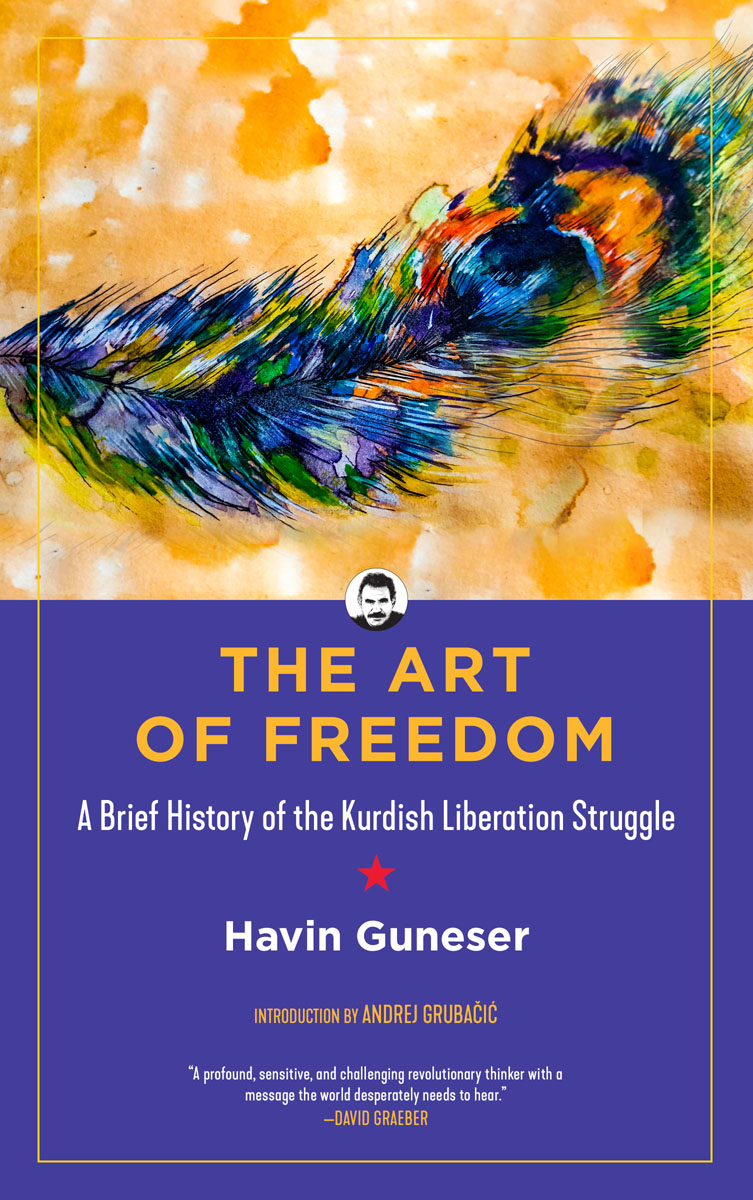
Havin Guneser is not just the worlds leading authority on the thought of Abdullah calan; she is a profound, sensitive, and challenging revolutionary thinker with a message the world desperately needs to hear.
David Graeber, author of Debt: The First 5,000 Years and Bullshit Jobs: A Theory
This book is a necessary contribution to the understanding of a revolutionary movement that is very different from the Eurocentric legacy of European and Western revolutionary traditions. The science of women, or jineology, is one of its contributions, one that both men and women should understand to deepen our critique and our anti-capitalist struggle, along with the concepts of critique and self-critique and democratic confederalism.
Ral Zibechi, author of Dispersing Powers: Social Movements as Anti-state Forces and The New Brazil: Regional Imperialism and the New Democracy
A bright light shining through the darkness of these times, an extraordinary achievement in the most dreadful conditions. We need to understand more about the struggle for freedom being fought by the Kurdish movement. This book by Havin Guneser is a clear, committed, inspiring, and necessary introduction to the movement and its ideas.
John Holloway, author of Crack Capitalism and In, Against, and Beyond Capitalism: The San Francisco Lectures
In this unmissable book, Havin Guneser strikes the right chords with her uncompromising and warmhearted analysis of the Kurdish freedom movement and the Kurdish womens movement. A must-read for everyone who wants to understand what the struggle for freedom means in todays violent world.
Ana Cecilia Dinerstein, author of The Politics of Autonomy in Latin America: The Art of Organising Hope and Social Sciences for an Other Politics: Women Theorizing without Parachutes

In ancient Greek philosophy, kairos signifies the right time or the moment of transition. We believe that we live in such a transitional period. The most important task of social science in time of transformation is to transform itself into a force of liberation. Kairos, an editorial imprint of the Anthropology and Social Change department housed in the California Institute of Integral Studies, publishes groundbreaking works in critical social sciences, including anthropology, sociology, geography, theory of education, political ecology, political theory, and history.
Series editor: Andrej Grubai
Recent and featured Kairos books:
Asylum for Sale: Profit and Protest in the Migration Industry edited by Siobhn McGuirk and Adrienne Pine
Building Free Life: Dialogues with calan edited by International Initiative
The Sociology of Freedom: Manifesto of the Democratic Civilization, Volume III by Abdullah calan
In, Against, and Beyond Capitalism: The San Francisco Lectures by John Holloway
Anthropocene or Capitalocene? Nature, History, and the Crisis of Capitalism edited by Jason W. Moore
We Are the Crisis of Capital: A John Holloway Reader by John Holloway
Re-enchanting the World: Feminism and the Politics of the Commons by Silvia Federici
Autonomy Is in Our Hearts: Zapatista Autonomous Government through the Lens of the Tsotsil Language by Dylan Eldredge Fitzwater
The Battle for the Mountain of the Kurds: Self-Determination and Ethnic Cleansing in the Afrin Region of Rojava by Thomas Schmidinger
Crossroads: I Live Where I Like: A Graphic History by Koni Benson, illustrated by Andr Trantraal, Nathan Trantraal, and Ashley E. Marais
For more information visit www.pmpress.org/blog/kairos/
The Art of Freedom: A Brief History of the Kurdish Liberation Struggle
2021 Havin Guneser
This edition 2021 PM Press
All rights reserved. Except for brief quotations in critical publications or reviews, no part of this book may be reproduced, used, or stored in any information retrieval system, or transmitted in any form or by any means, electronic, mechanical, photocopying, recording, or otherwise in any manner without prior written permission from the publisher.
ISBN: 9781629637815 (paperback)
ISBN: 9781629639079 (hardcover)
ISBN: 9781629638041 (ebook)
Library of Congress Control Number: 2019946089
Cover Image: nperik by Ercan Altunta, watercolor on canvas, 13 27 cm
Cover by John Yates / www.stealworks.com
Interior design by briandesign
10 9 8 7 6 5 4 3 2 1
PM Press
PO Box 23912
Oakland, CA 94623
www.pmpress.org
Printed in the USA.
Published with International Initiative Edition
International Initiative
Freedom for Abdullah calan Peace in Kurdistan
P.O. Box 100 511
D-50445 Cologne
Germany
www.freeocalan.org
Contents
Introduction
Andrej Grubai
The Art of Freedom is undoubtedly the best introduction to the Kurdish liberation struggle available in the English language. One of the many virtues of this splendid book is that it is not focused exclusively on the revolutionary process in northeastern Syria. Rather, this remarkable revolutionary project has been carefully situated within the much broader and much longer history of the Kurdish freedom movement. But perhaps the strongest recommendation for spending time with this short book is the author herself. While it certainly may appear counterintuitive to insist on the significance of author in the context of the antiauthoritarian movement she so vividly describes, it would be a disservice to readers not to spend at least a moment on Havin Guneser. A friend and a heval (comrade) to many, Havin has been tirelessly, seemingly effortlessly, explaining and translating the political language of democratic modernity for people outside of the Middle East. For many of us, she has been a principal point of contact, a guide to the universe of astonishingly innovative political practices exemplified in the Rojava revolution. As a spokesperson for the International Initiative Freedom for Abdullah calanPeace in Kurdistan, Havin has witnessed and been party to the important shifts and changes that inform and orient this book. Her informal presentation style makes these essays, originally lectures delivered in the auditorium of California Institute of Integral Studies in San Francisco, the partner institution of Rojava University, both direct and captivatingtransporting the reader to the streets of Koban and Qamishli, as well as elaborating upon political meetings that took place in the Kurdish mountains. (I love you as much as Apoist members love their meetings! is a wedding vow one sometimes hears in Kurdistan). One could speak of walking through the history of the region with Havin, and it gradually becomes clear that in the course of all this walking, the author has become a comrade.
By meticulously reconstructing the history of the Kurdish struggle, Havin dispatches a number of persistent myths. Contrary to more than a few erroneous interpretations, the revolution in Rojava was not a spontaneous miracle or the product of an immaculate conception. It was a result of forty years of organizing. This vision of free life, as Havin calls the organizational structures that were set up in prerevolutionary Syria, has not been easy to realize. As one of the cochairs of the canton of Koban said during my visit to that city, The reason Koban still stands is precisely because we have built the structures of self-organization well before the ISIS attack. By the time Assads army retreated from the northeast in 2012, the region was already organized in decentralized direct democratic committeesas an alternative to nation-state, this system is more accurately described as democratic confederalism. One of the cornerstones of democratic modernity, democratic confederalism rests on principles of democratic nation, democratic politics, and communal self-defense. Within this political context, accumulation of power and capital have been eradicated by the structures of a democratic, ecological, and gender-liberated society. The sociology of freedom replaces the sociology of the state, and the unit of both action and analysis returns to moral and political society.
Next page
